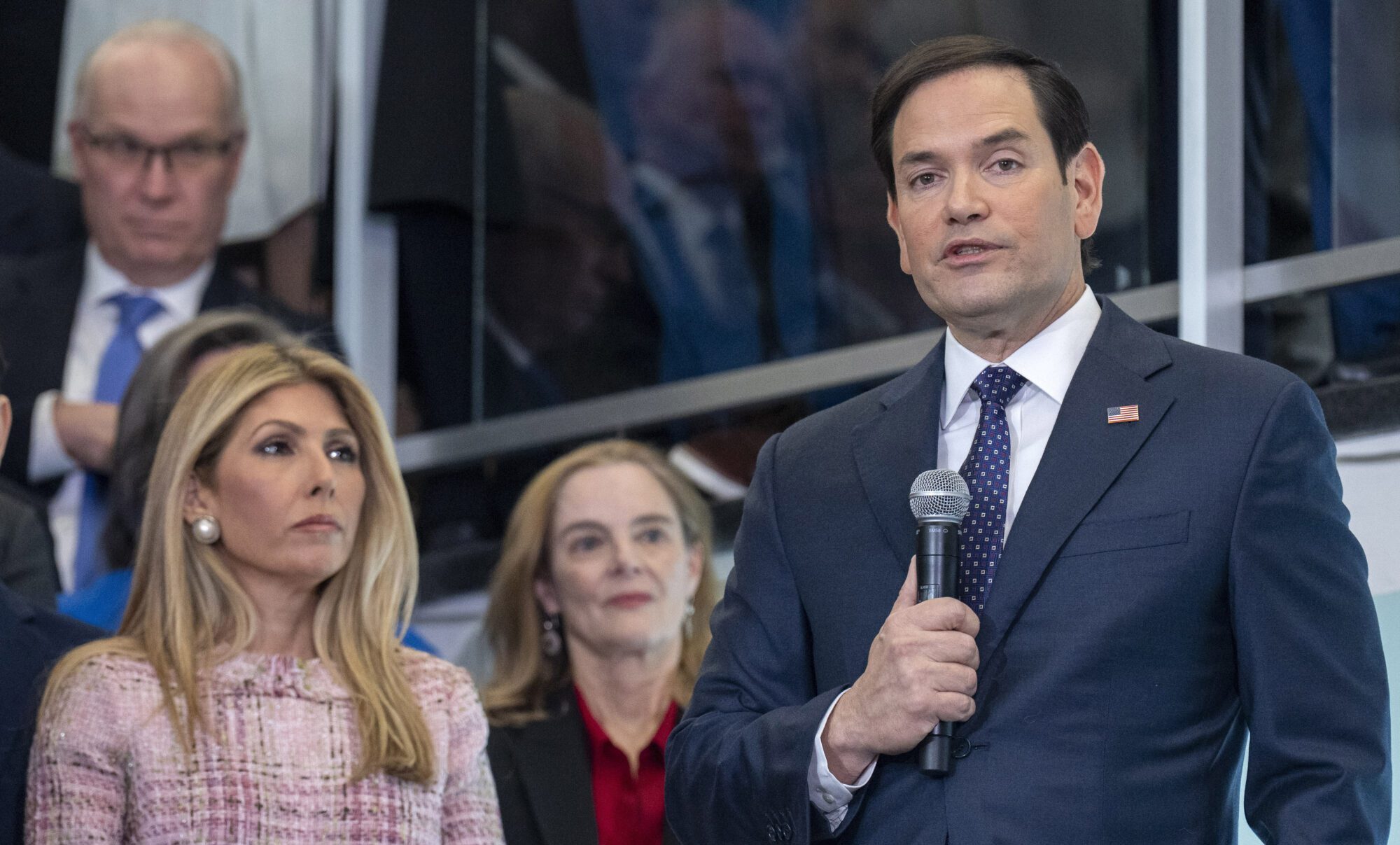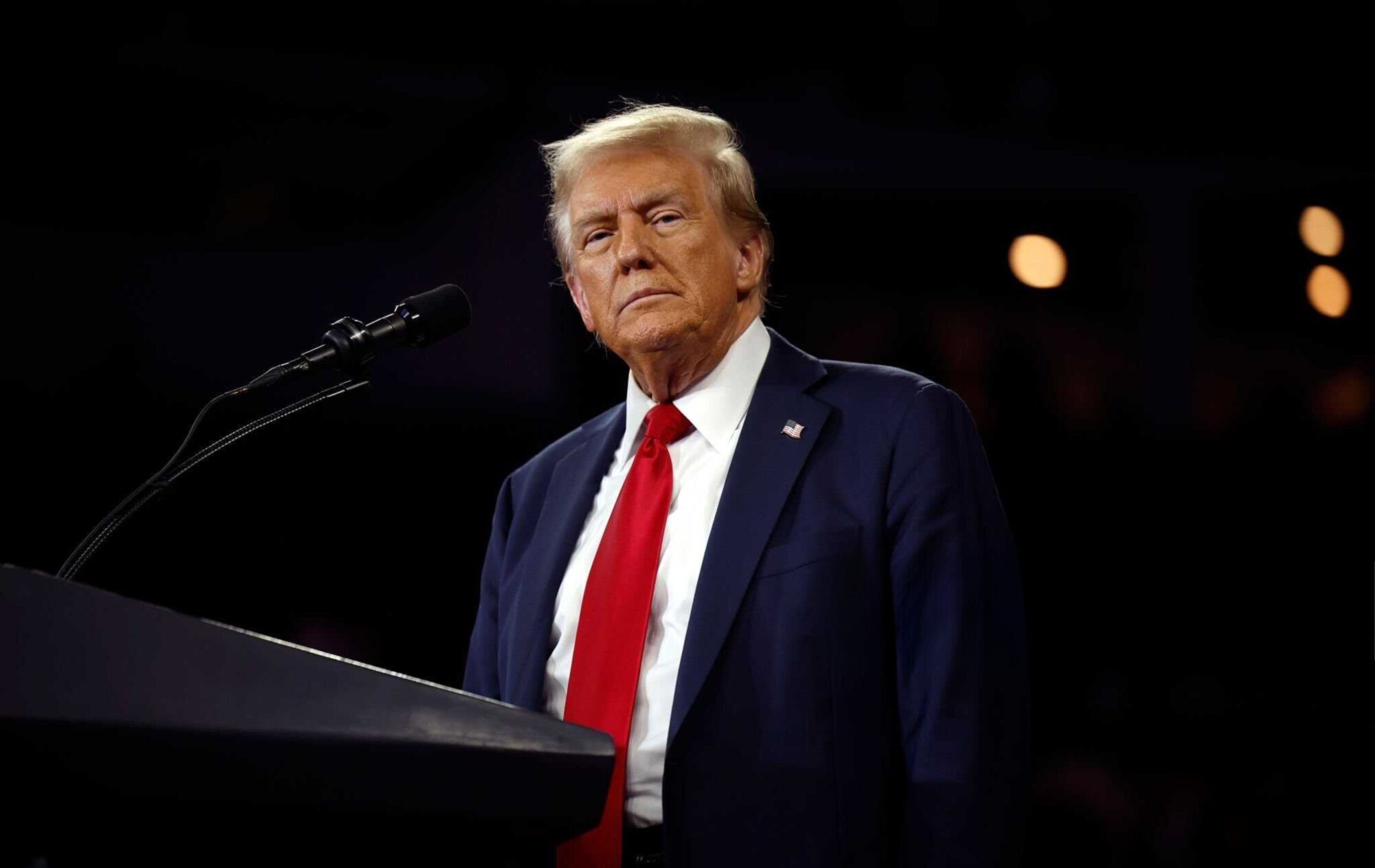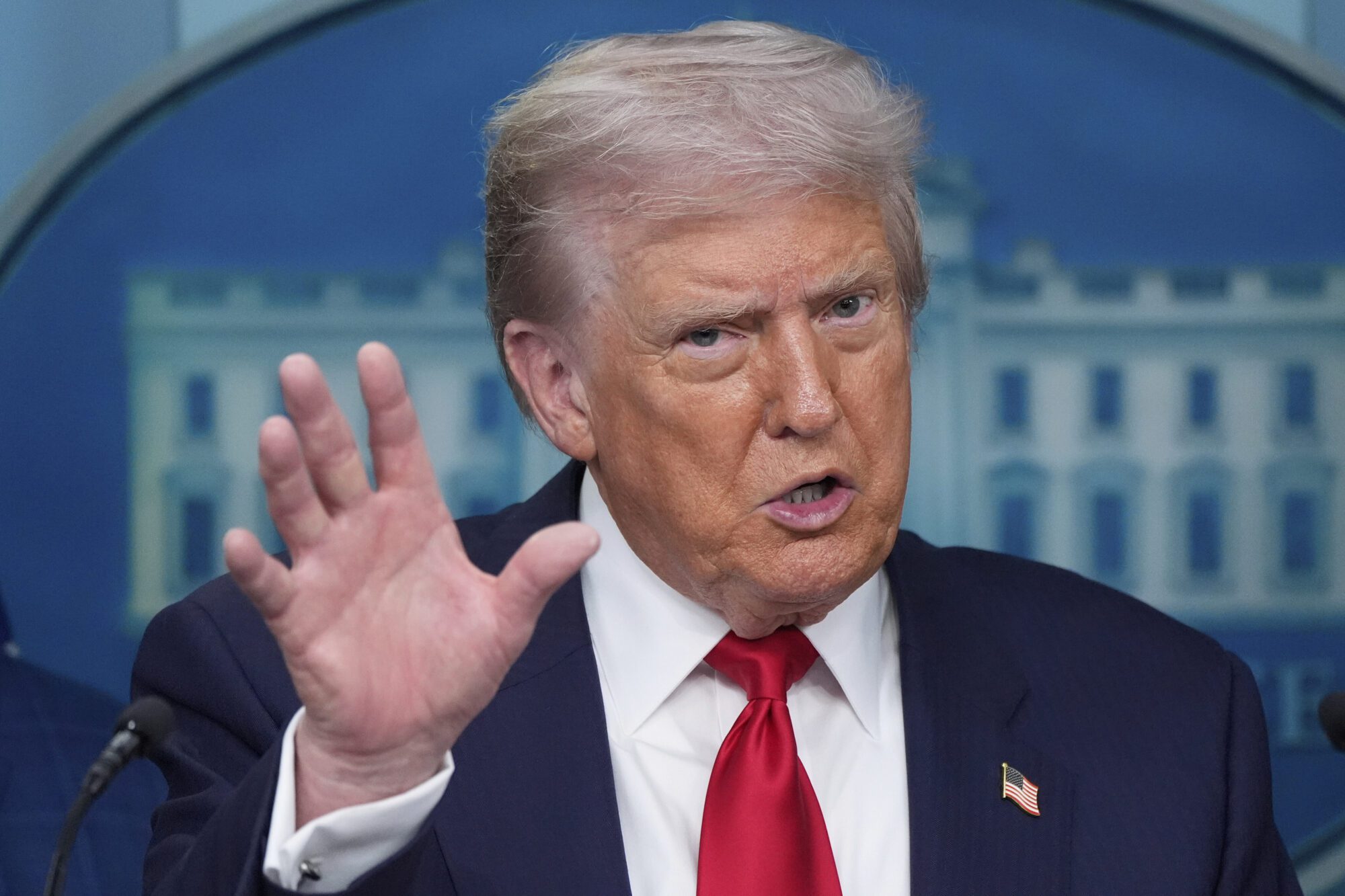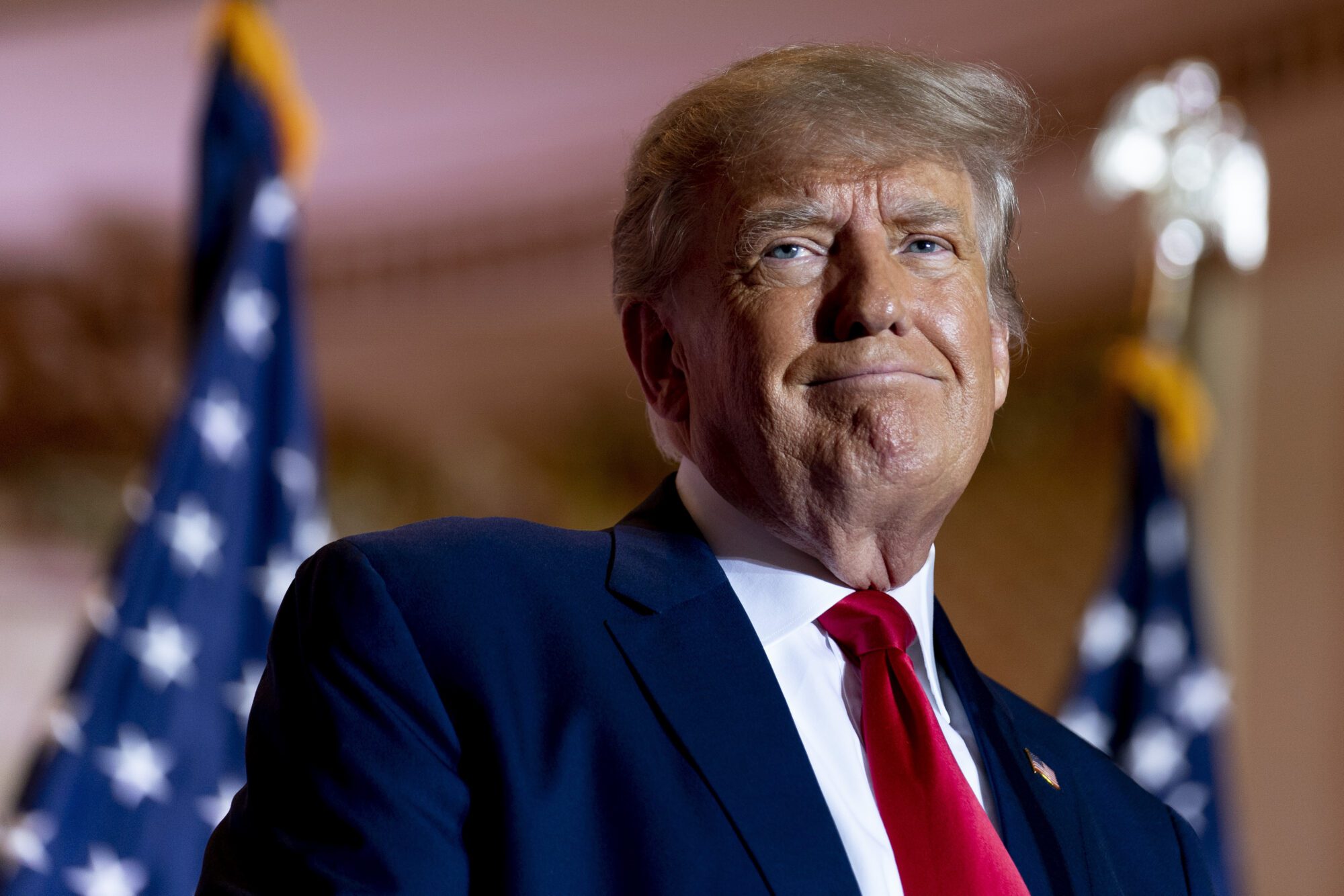
Secretary of State Marco Rubio speaks to State Department staff while next to his family including wife Jeanette Dousdebes Rubio, at left, at the State Department, Tuesday, Jan. 21, 2025, in Washington. (AP Photo/Jacquelyn Martin)
- New Secretary of State Marco Rubio, who authored a lengthy report condemning a “woke” State Department, will be as advertised in the new post.
Shortly after taking the oath of office, Secretary of State Marco Rubio sent a cable to every U.S. diplomatic and consular post worldwide. The stark message from the new diplomat: Sweeping changes are coming to a department that had mistakenly emphasized “ideology over common sense” and “misread the world.”
The lengthy cable was sent shortly after Rubio arrived at his new post in Foggy Bottom and was obtained exclusively by RealClearPolitics. It signals a fundamental shift in foreign policy and a realignment of all diplomatic efforts toward putting American needs first.
Toward this end, President Trump’s new diplomat promised to focus on mass migration, terminate DEI policies within the department, end the “censorship of the American people,” and pursue “energy dominance.”
Rubio was confirmed unanimously by the Senate the day before and is the first of Trump’s Cabinet nominees on the job. Previously, he was a senior senator from Florida, and he served on the Foreign Relations Committee for more than a decade. He developed a reputation as a China Hawk and a fierce critic of the neoliberal foreign policy consensus that emerged after the Cold War.
The United States won that conflict against the Soviet Union, Rubio has long argued, only for an out-of-touch elite to place international interest above the concerns of the country. It is this view that likely won him the job.
Before administering the oath of office inside the Eisenhower Executive Office Building adjacent to the White House, Vice President J.D. Vance praised the diplomat, saying that Rubio “more than almost anybody that I’ve met in Washington” had a deep understanding of “the distinctive priorities of President Trump.” In his subsequent cable, as he did during his confirmation hearing, the new secretary immediately defined just exactly what an America First foreign policy would look like in practice.
“Every dollar we spend, every program we fund, and every policy we pursue must be justified with the answer to three simple questions,” Rubio wrote. The questions: Does the action make America safer, stronger, and more prosperous?
To answer those questions in the affirmative and to realign the department with the mission of the new president, Rubio warned the diplomatic corps that the department will be transformed “into one that is innovative and nimble.” Said the new diplomat, “Certain priorities will be replaced, certain issues deemphasized, and some practices we will cease altogether.”
Many of his old colleagues will welcome that message. Republicans have grown frustrated with a department that they argue has become too progressive in all things. Rubio, who authored a lengthy report condemning a “woke” State Department, will be as advertised in the new post. Before Inauguration Day, a shakeup in personnel was already underway at Foggy Bottom. No less than 20 State Department officials, a mix of career diplomats and political appointees of former President Biden, reportedly received notification that their services would no longer be needed.
The first specific agenda item in the cable: stopping illegal immigration and securing the U.S. border. Rubio called tackling this issue, a Trump hallmark, “the most consequential issue of our time” and told his staff the world over that, effective immediately, “this department will no longer undertake any activities that facilitate or encourage it.”
More than 2 million illegal immigrants entered the United States each year on average under former President Biden, a historic surge. In concert with Trump’s executive orders, and lest there be any confusion, Rubio wrote, “The era of mass migration must end.”
Rubio also announced new personnel policies in line with Trump’s executive order ending so-called diversity, equity, and inclusion hiring practices. His predecessor, former Secretary of State Antony Blinken, had emphasized those ideals, requiring department officials to “advance” DEI as a prerequisite for promotion and implement an “equity action plan.” The Biden administration often emphasized that equity must be “at the center.”
Under Rubio, the byword will, instead, be equality. He warned the department will end all evaluation and promotion practices other than those based on “performance and merit,” adding that “strict meritocracy is essential to securing our nation’s future.”
Rubio previously argued while in the Senate that an emphasis on progressive policies at the department had undermined American influence abroad. In a 2023 report co-authored with Florida Rep. Brian Mast, the then-senator highlighted how Biden’s ambassador to France, in line with Blinken’s DEI policies, had “removed paintings of American Founding-era figures and replaced them with pictures of a transgender activist, a violent protester, socialist leaders, and communists in the name of diversity.”
He now has authority over all such posts and practices, and he warned that any counterproductive activities “must, and will, end.” Instead, the new secretary told a diplomatic corps that is still getting to know him that the new administration will return to what he called “the basics of diplomacy.”
“Far too much of America’s diplomacy is focused on pushing political and cultural causes that are divisive at home and deeply unpopular abroad,” he wrote. “This creates unnecessary friction with other nations and obstructs our ability to conduct a pragmatic foreign policy and work cooperatively with other nations to advance our core national interests.”
Another thorny issue that Rubio highlighted is how the State Department combats misinformation and disinformation. He condemned in this cable the “agencies and programs of our own government” that have engaged “in censorship, suppression, and misinformation of their own.”
During the Biden administration, Republicans bristled at the Global Engagement Center, an effort spearheaded by the State Department, which conservatives charged was engaged in censorship of Americans and blacklisting of domestic media organizations. Notably, Elon Musk called the center “the worst offender in U.S. government censorship and media.”
While Rubio said that the department will remain vigilant and continue to combat “enemy propaganda,” any programs under his jurisdiction that “lead or in any way open the door to censorship of the American people will be terminated.”
Biden had previously dubbed climate change an existential threat and a top priority, directing the State Department to put the issue front and center. Again, Rubio said this was a mistake, writing that “much of American foreign policy has been reoriented around climate policies that weakened America.” The department, he added, “will not ignore threats to our natural environment” but will remain focused instead on the stated mission of the new president: “energy dominance.”
Rubio now inherits a world, if not on fire, still smoldering. The land war in Ukraine continues. Tensions remain high in the Middle East despite a ceasefire between the terrorist organization Hamas and Israel. China, meanwhile, is as aggressive as ever in the Indo-Pacific. The new secretary of state will confront it all, and to do so, he began by remaking the department in an America First image.
“Our department will take the lead in revitalizing alliances, strengthening ties with other partners and allies, and countering the malign activities of our adversaries. We will refocus American foreign policy on the realities of today’s reemerging great power rivalry,” Rubio wrote. “And we will explore and creatively exploit the many new and unexpected opportunities that this changing world affords our nation.”











